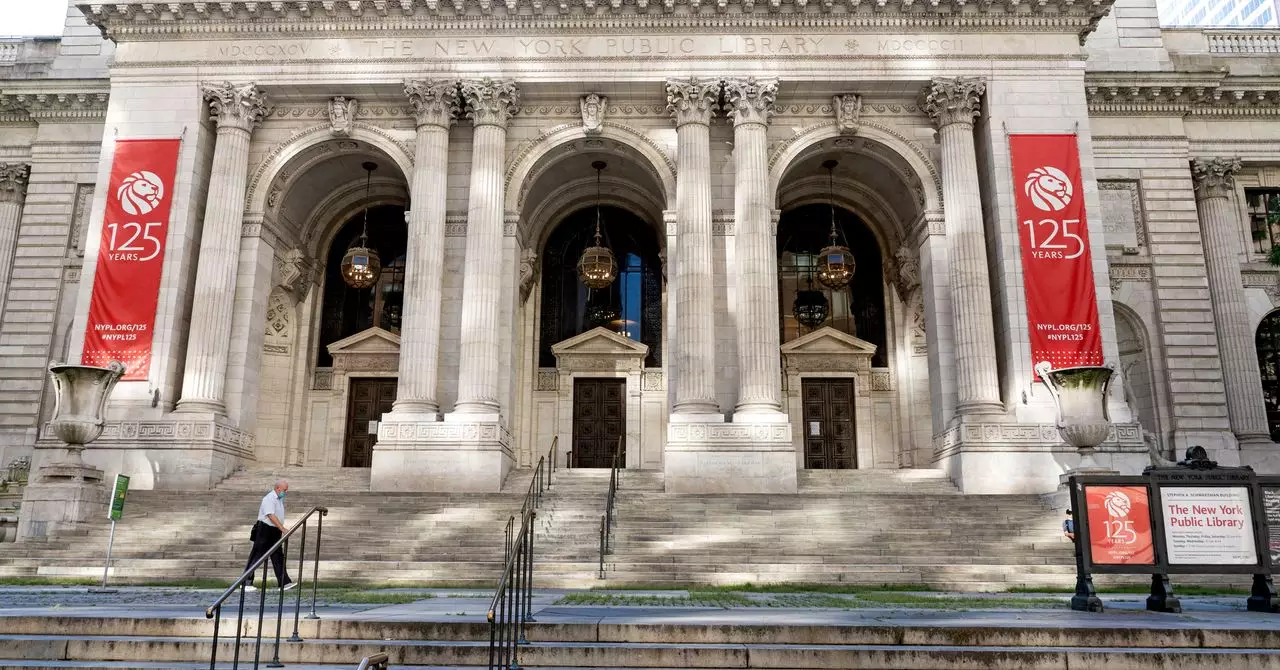The recent developments unfolding in the realm of public funding for libraries and museums under the Trump administration paint a distressing picture for communities across the United States. At the heart of this issue lies the Institute of Museum and Library Services (IMLS), a federal agency that has been pivotal in supporting educational initiatives and enhancing cultural resources. The drastic cuts to its funding, driven by a unique collaboration between the administration and Elon Musk’s “Department of Government Efficiency,” signal a troubling shift towards devaluing institutions integral to community identity and knowledge access.
Impact on Community Engagement
The implications of slashing funds to IMLS extend far beyond budgetary numbers; they threaten the very fabric of community engagement. Libraries and museums serve as more than mere lending libraries or art displays; they are active hubs of learning and connection for residents of all ages. Schoolchildren rely on these institutions for field trips that ignite their imaginations, while seniors benefit from classes that keep them engaged and socially active. Victims of these funding cuts include invaluable programs tailored to enrich the lives of the community’s most vulnerable populations.
Access to digital services like the ebook app Libby, which has opened up a world of literature to countless users, now hangs in the balance. The sudden temp layoffs of the IMLS staff, as reported by employees, illustrate a chaotic dismantling of services essential for maintaining the flow of cultural and educational resources. Underfunding of such agencies can lead to a void that prevents innovation and access to knowledge from flourishing in local communities.
Voices of Concern and Discontent
Amid the upheaval, voices from the affected community, including anxious IMLS employees, have expressed profound disappointment. The abrupt announcement of paid administrative leave for nearly all staff members signals uncertainties ahead—in terms of job security and, importantly, the continuity of crucial programs. The decision appears disconnected from the broader significance of these institutions, fueling fears that cultural and educational initiatives may be sacrificed at the altar of ideological pursuits.
Union representatives have underscored the potential consequences for previously awarded grants, which have been integral to funding local programs. As staff members lose their positions and powers to administer grants, numerous projects that benefited community engagement and development now lie dormant. The unknown fate of these funds—which assist states in enhancing their local library services—casts a somber shadow over initiatives that aim to foster creativity, learning, and inclusivity.
A Budget Discrepancy: The Value of Investment
While the annual budget of IMLS is a mere fraction of overall federal spending, its impact is profound relative to its cost. For less than $1 per person in the U.S., IMLS has distributed millions in grants that empower local libraries and museums. These institutions utilize allocated funds for purposes such as staff training, educational workshops, and resources aimed at increasing accessibility. Cuts to this agency reveal a higher-level disregard for community investments, evident when states like California and Texas rely heavily on IMLS funding to support their vast populations.
In Idaho, for instance, a museum anticipated funding that could have transformed its outreach programs for students. In North Carolina, the allocation intended for seniors showcases how libraries and museums cater to diverse interests and learning needs. Eliminating these financial resources deprives communities of the tools to foster education, culture, and creativity, curtailing aspirations that hinge on access to information.
Systemic Changes and the Path Forward
The closure of many IMLS initiatives serves as a stark warning of what happens when cultural investments come under attack. Moving forward, a reevaluation of priorities is needed—one that recognizes the power libraries and museums hold in educating and enriching communities. It’s vital for stakeholders at all levels to rally around these institutions, not only to preserve them but to expand their services and reach.
As citizens grapple with the fallout of reduced funding, it is crucial to visualize a future where local libraries and museums are not merely surviving but thriving as dynamic centers of community life. Empowering these institutions can usher in cycles of growth, engagement, and ethical education, which can solidify a better-informed and culturally rich society for generations to come.

